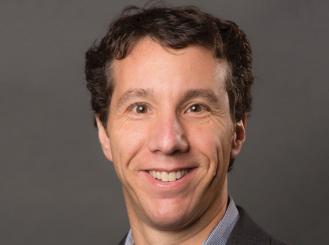Jan 07, 2019
After working for 15 years as a thoracic oncologist at Memorial Sloan Kettering Cancer Center, Lee M. Krug, MD, left his academic position in 2015 and joined Bristol-Myers Squibb to lead one of the oncology U.S. Medical Affairs teams. Now, he serves as a program lead in Clinical Development for Bristol-Myers Squibb’s immuno-oncology pipeline. In this role, he helps design and run clinical trials.
How did you initially choose your current career path? Were there any unexpected detours along the way?
LK: My uncle is a medical oncologist in Dallas, so I suspect there was some inherent fascination. Then during my residency, I learned about new advances in cancer research and it became clear to me the field was entering an incredibly exciting time. My interest in clinical cancer research led me to Memorial Sloan Kettering for fellowship training. There, I had the opportunity to work on the phase I trial for ZD1839, which would later become known as gefitinib. Over the next several years, we learned a tremendous amount about targeted therapies and molecular profiling. More recently, the era of immuno-oncology emerged, and with that, I made a decision to learn about drug development from the industry point of view. It has been absolutely amazing to witness the transformation of cancer treatment during my career.
Along with your uncle, who helped guide your career development?
LK: I have been fortunate to have had several mentors throughout my career who have had lasting impressions on me. One of the most influential was Dr. Mark Kris, who brought me onto the Thoracic Oncology Service during my fellowship at Memorial Sloan Kettering and helped launch my career. He modeled many positive behaviors that I respect: compassionate patient care, generosity in sharing opportunities with junior team members, uncompromised ethics, and the importance of family and work/life balance. These are values that I attempt to emulate as I have become a mentor for others.
Describe your typical work day.
LK: No one day is like the next, and this variety keeps the job interesting. Most of my days are spent discussing topics which could range from clinical trial design, statistical analyses, data review, presentation and publication plans, and regulatory considerations.
If you have to pick one aspect, what part of your job is your favorite?
LK: My favorite aspect of my job is the opportunity to learn new things. Each step along the way—moving from academics to industry, from lung cancer to multiple other tumors, and from medical affairs to clinical development—has afforded me the opportunity to broaden my experiences and expand the circles of people with whom I interact.
Why would you recommend this career to someone starting out in oncology?
LK: I think this is the most extraordinary time in cancer research. The pace of scientific discovery and the translation of that directly into novel treatments and improvements in patient care has never been more exciting. This has created an environment, in academics and in industry, rich with a tremendous range of opportunities and a need for talented researchers.
What kind of person thrives in this professional environment?
LK: Academic oncologists often establish expertise in one highly specific area, while people working in industry may gain experience across a broader range of areas. In my opinion, a career in industry is optimal for someone who is looking for an often changing environment as well as experience across different roles and responsibilities. In clinical development, we follow the science with the ultimate goal of improving care for patients, so it’s important to remain constantly curious, undeterred by challenges or roadblocks, and able to apply learnings from the past to help advance research.

